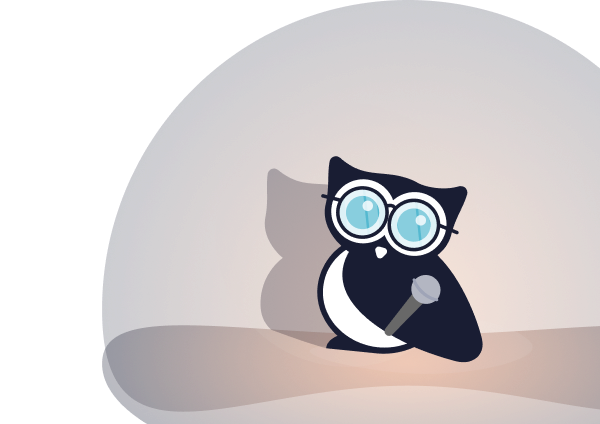
Write the Docs: Is Tech Writer a Tester, and Vice Versa, Is Tester a Tech Writer? – Ines Stefanovic
By Catherine Heath on Writing docs from April 29, 2021
This Write the Docs Portland 2021 talk was given by Ines Stefanovic. Ines has worked as both a tester and a technical writer, and now is a software quality engineer with IBM. This talk is about the similarities between tech writers and testers, and why you might want to consider a career change.
The difference between tech writers and testers
Ines began her talk by looking at some of the differences between tech writers and testers.
According to Ines, a technical writer is someone who transforms complex written material into clear and concise documentation to be read by target audiences. They take high level information and process it into digestible content – they are professional information communicators. They simplify the complex using a skillset that they may share with testers.
A tester, on the other hand, ensures the functionality of usability in software products. Testers work closely with software products and developers, and test the product functionality to verify the product works as intended. They implement certain standards and metrics to confirm that the software works as designed. They collect and analyze data. They test the software and identify issues and solutions, followed by corrective actions.
So technical writers are concerned with the written material about a product, and testers are responsible for making sure the product works properly.
Why tech writers and testers are similar
Next, Ines looked at some of the similarities between the two roles.
They break things down into smaller pieces
Technical writers and testers are similar because they both break things down. Technical writers break down complex technical products into easy-to-understand guides that help the end user, while testers break down tests into smaller steps that logically tie one onto the other.
They revise
The testing process itself is revisionist just like the writing process. As a writer, you draft content and make revisions, until the document is good enough to be published. As a tester, you probably won’t publish the first iteration of the software either – no software comes without bugs.
They provide clear instructions
Writers provide clear instructions for your users. Testers often need to share their testing steps with other testers, so they, too, need to write tests clearly so the person who comes after them understands what they wrote.
Ines also noted that if you’re writing API documentation, you’re half the way to writing automated tests. You already understand the functions of the API and those same things are used when automating tests.
Being a software tester
Ines talked about some of the reasons why you might want to become a software tester.
If you live for details, enjoy working methodically to solve problems, and have a knack for understanding software user behaviors, a job as a software quality assurance (QA) engineer may be just the tech career path for you to explore. After the tests are written, you execute them and analyze the results. You report them back to your team or your superiors. It helps if you understand certain development methodologies such as Agile and Scrum, because they are used most often these days.
Technical writers and testers both share the same skills in some ways. You need analytical skills, communication skills, time management and organization. You need good verbal and written skills because you'll need to talk to many people to get the information you need. Time management is important because you might have new features which are suddenly part of the release, so you have to work fast. It’s a plus if you have passion and attitude.
If you're interested in testing or will work closely with testers, Ines recommends the book Agile Testing: A Practical Guide for Testers and Agile Teams. It covers how testers and technical writers can exchange information. Technical writers can come up with documentation that testers can use in their testing. Sometimes, testers can also help technical writers with the documentation they need to write.
In small companies, technical writers can help with testing, and testers can help with the documentation. For example, Ines worked in a company that had no technical writers, and she was the only tester. She would write the documentation user guides based on the information that development had available.
So there is not a totally clear line between technical writers and testers, and you might want to transition from one to the other. (Fun fact: KnowledgeOwl's very own Kate Mueller does just this on a regular basis.)
Appealing to developers
When working as a tester or technical writer, you need to appeal to developers in the course of your work.
Whether you're a tester or a writer, Ines advises you keep a stash of sweets on your desk at work, s people will want to come and talk to you. Having a chocolate to say thank you will make people like you more and be available in the future to answer your questions.
Ines points out that development is creative work – developers create something with their coding skills and that something comes to life. Regardless of your role, if you come to developers to talk about their creation, they probably will want to talk to you.
Final remarks
On our team, Kate particularly liked this talk since she basically walks in both these worlds a lot of the time, and the skillsets in each really strongly complement each other. We'd recommend checking out Ines' talk and her recommendations if you find yourself wanting to improve the software your company creates without becoming a developer.
Watch the full talk here.


Writing docs
(253)

General posts useful to all documentarians about writing documentation, editing and publishing workflows, and more.


Feature spotlight
(15)

Your flight plan for how to get the most out of KnowledgeOwl features and integrate them into your workflows.


Announcements
(21)

Major KnowledgeOwl company announcements.


Customer stories
(9)

Learn how others are using KnowledgeOwl & get pro tips on how to make the most of KO!


Company culture
(40)

Find out more about who we are and what we value.


Support
(75)

We believe good support is the foundation of good business. Learn about support tools and methodology.


Tools
(64)

Learn more about tools to solve various documentarian issues, within and beyond KnowledgeOwl.


All
(384)

Not sure what category you need? Browse all the posts on our blog.

Got an idea for a post you'd like to read...or write?
We're always looking for guest bloggers.
Learn moreStart building your knowledge base today
- 30 days free (and easy to extend!)
- No credit card required
- Affordable, transparent pricing
- No cost for readers, only authors
Want to see it in action?
Watch a 5-minute video and schedule time to speak with one of our owls.


